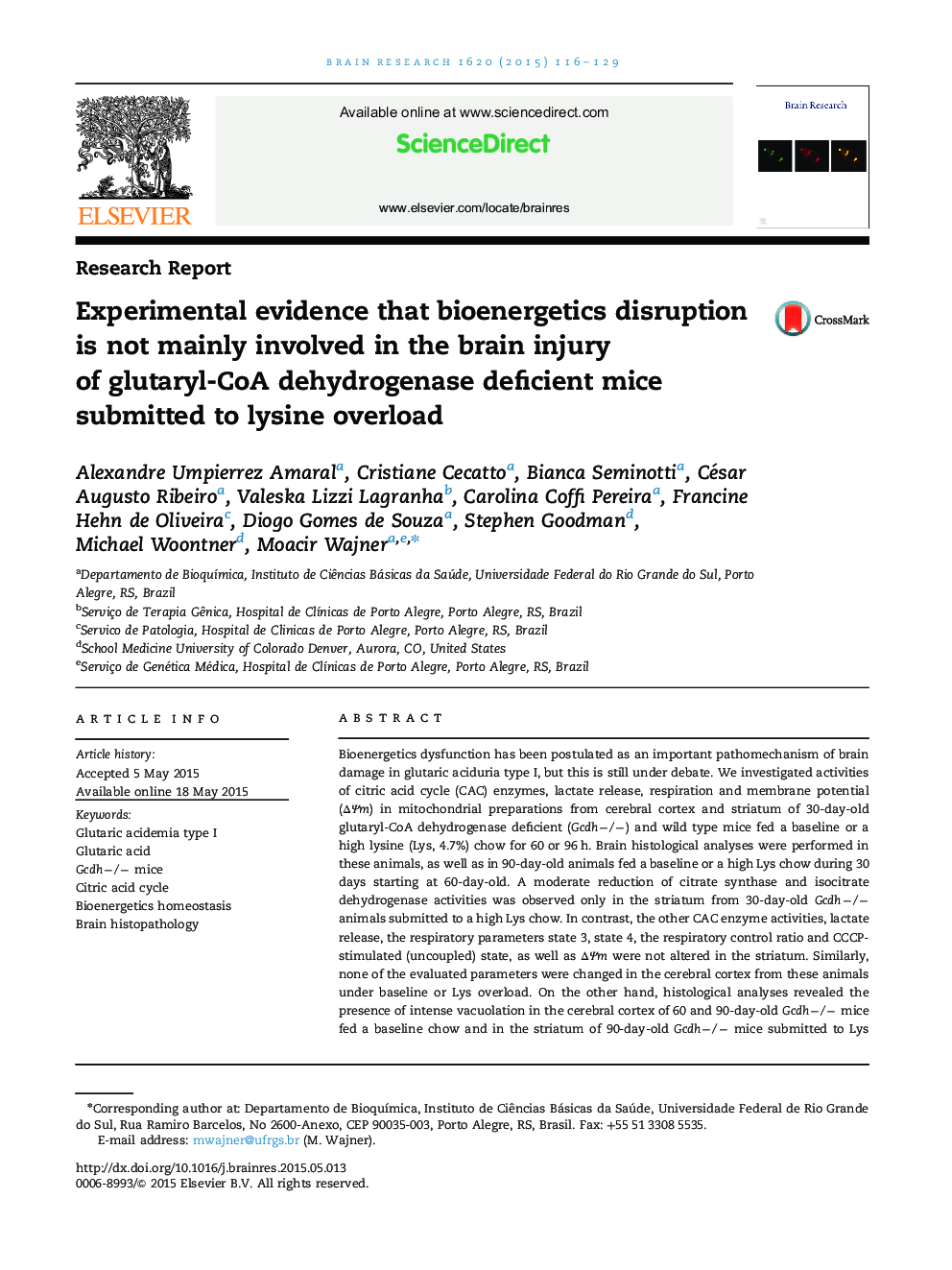| Article ID | Journal | Published Year | Pages | File Type |
|---|---|---|---|---|
| 6262980 | Brain Research | 2015 | 14 Pages |
â¢Brain bioenergetics and histopathology were evaluated in brain of Gcdhâ/â mice.â¢Mild alterations of energy homeostasis were observed in the striatum of 30-day-old Gcdhâ/â mice.â¢Cerebral cortex and striatum of adult Gcdhâ/â mice showed intense vacuolation.â¢Brain injury cannot be solely attributed to bioenergetics impairment in Gcdhâ/â mice.
Bioenergetics dysfunction has been postulated as an important pathomechanism of brain damage in glutaric aciduria type I, but this is still under debate. We investigated activities of citric acid cycle (CAC) enzymes, lactate release, respiration and membrane potential (ÎΨm) in mitochondrial preparations from cerebral cortex and striatum of 30-day-old glutaryl-CoA dehydrogenase deficient (Gcdhâ/â) and wild type mice fed a baseline or a high lysine (Lys, 4.7%) chow for 60 or 96 h. Brain histological analyses were performed in these animals, as well as in 90-day-old animals fed a baseline or a high Lys chow during 30 days starting at 60-day-old. A moderate reduction of citrate synthase and isocitrate dehydrogenase activities was observed only in the striatum from 30-day-old Gcdhâ/â animals submitted to a high Lys chow. In contrast, the other CAC enzyme activities, lactate release, the respiratory parameters state 3, state 4, the respiratory control ratio and CCCP-stimulated (uncoupled) state, as well as ÎΨm were not altered in the striatum. Similarly, none of the evaluated parameters were changed in the cerebral cortex from these animals under baseline or Lys overload. On the other hand, histological analyses revealed the presence of intense vacuolation in the cerebral cortex of 60 and 90-day-old Gcdhâ/â mice fed a baseline chow and in the striatum of 90-day-old Gcdhâ/â mice submitted to Lys overload for 30 days. Taken together, the present data demonstrate mild impairment of bioenergetics homeostasis and marked histological alterations in striatum from Gcdhâ/â mice under a high Lys chow, suggesting that disruption of energy metabolism is not mainly involved in the brain injury of these animals.
